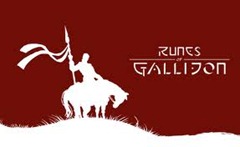 On Publishing Perspectives Daniel Kalder talks with Scott Walker, president of Brain Candy LLC and one of the people behind the Creative Commons shared-universe project Runes of Gallidon. Walker believes that there is a gap between creators of commercial media, and the fans who enjoy the commercial media enough to create their own derivative works based on it and distribute them for free. He thinks the gap can be bridged, with financial benefits for all.
On Publishing Perspectives Daniel Kalder talks with Scott Walker, president of Brain Candy LLC and one of the people behind the Creative Commons shared-universe project Runes of Gallidon. Walker believes that there is a gap between creators of commercial media, and the fans who enjoy the commercial media enough to create their own derivative works based on it and distribute them for free. He thinks the gap can be bridged, with financial benefits for all.
In Walker’s proposed “transmedia” projects like Runes of Gallidon, there are gatekeepers on the world to make sure that any prospective new additions fit in well with the world and don’t break things that already exist. Fans contribute their creations into the world, and though they keep the rights to the creation, others may pick the characters up and use them (though their uses end up needing to pass muster by the world’s gatekeepers too).
“For example, you might create a character in a novel, and the novel does meh. Someone else however might take a minor character from inside your story and then write another novel that could take off, and we could secure film rights for it. The creator of the character would get nothing — revenue is shared at the work level. On the other hand he might get some collateral benefit. For instance people might go back and look at that original book. There are lots of ways to do this, however, it’s not a one size fits all model.”
The idea is pretty similar to…well, any of the zillion or so shared universes that have ever sprung up, flourished, withered, and died on the Internet, including the ones I used to write for. Some of them didn’t have explicit gatekeepers, of course, but there was a sort of de facto gatekeeper in that if someone else’s work sucked, nobody else would touch it with a ten foot pole.
It also reminds me of “The Story So Far,” the shared-universe setting Cory Doctorow posited in his short story “The Right Book” (read aloud by Neil Gaiman here, or by Kim Lakin-Smith here), in which the authors of a shared universe printed, bound, and sold their own “editions” of the works within.
Of course, there’s still a fundamental disconnect between fans getting together to write their own stories within a setting and the big commercial interests wheeling and dealing in rights and contracts so complicated you need a passel of lawyers to figure them out. Many of these concerns outright ignore fanfic, and the fanfic writers are happier that way.
On the other hand, some writers are slowly coming around to allowing Creative Commons fanfic of their works (for instance, Mercedes Lackey has started to permit it). It’s still a long way between that and major motion picture studios signing on, of course—because those legal issues still do require a passel of lawyers, and probably will for the conceivable future. And in our litigious society, even giving someone an excuse to sue can land you in a world of hurt.
“Fans have always co-created value. They want to revisit the entertainment worlds they like, and won’t wait for canonical material to drop from heavens . . . The question for creatives is: what are you going to do about it? The traditional path is: ‘we’re not going to monetize, but will send cease and desist orders.’ Sometimes that’s appropriate, but sometimes it’s a form of denial -– fans can be adding value to the property. At Brain Candy, we want to tap into this. We want to legitimize fandom, to build a bridge between creatives and their audience, to create a filter and a set of rules. We reject stuff that breaks coherence and continuity, but keep things that add to it. It’s a matter of constructing a rule set that doesn’t take away rights from creatives, and which allows audiences to co-create value in a transmedia world.”
Sounds great to me, but the question is whether it can ever actually happen. In a world where the estate of a dead author has sued to stop a fanfic sequel from being sold in the US or Canada, I think we may still have some distance to go.

































Chris,
Thanks for highlighting Runes of Gallidon!
You’re right about this being a legal uphill battle.
Happily, there are many, many participatory frameworks to choose from. The spectrum of entertainment models between traditional entertainment properties and properties like Runes of Gallidon is immense.
Entertainment companies can take much smaller steps towards models like Runes of Gallidon that still embrace a higher degree of value co-creation with audiences than we’re used to (they can construct much smaller sandboxes for collaboration, for instance, rather than opening up an entire world).
And we’ll continue to see more examples of participatory entertainment at the commercial level, such as World of Depleted (http://worldofdepleted.com/).
We may not close the gap between fandom and canon as quickly as we like or take the fastest route, but we *are* moving in the right direction. It’s only a matter of time.